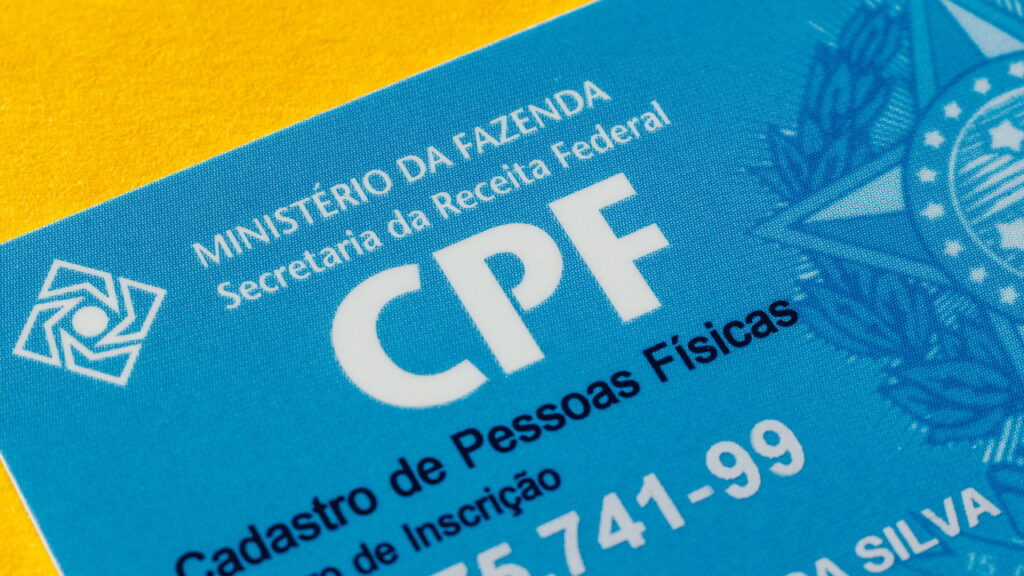Practice request CPF Consumers in commercial transactions, especially at gas stations, It has become very popular in Brazil. Companies such as Ipiranga, Petrobras and Shell dispute this The measure offers advantages And discounts for customers. However, this strategy has generated increasing controversy around privacy and compliance with current legislation.
Since the entry into force of the agreement GDPR (General Data Protection Law)General Data Protection Regulation) As of September 2020, the collection and use of CPF as personal data requires explicit and informed consent from the customer. Failure to comply with these regulations may result in severe penalties for companies.
What is the importance of LGPD in the use of CPF in gas stations?
the General Data Protection Regulation It was created to protect the personal data of citizens, CPF classification as sensitive information. Therefore, obtaining this data requires prior and specific consent.
This law seeks to ensure that this information is used in a transparent and secure manner. Avoid misuse and leaks that may harm the consumer.

How can lack of privacy affect you?
The lack of privacy at gas stations, especially regarding the data collected during payment, can affect you in several ways:
- Financial risks:
- Fraud: Your payment details, such as your card number and security code, can be stolen and used for unauthorized purchases.
- Card cloning: Criminals can copy your card information to create a copy of it and use it for other transactions.
- Phishing scams: You may receive fake messages in the name of the gas station asking for your personal or banking information.
- Privacy risks:
- Track consumption habits: Information collected about your fuel expenditures may be used to create a consumption profile and target personalized advertising.
- Selling data to third parties: Your data may be sold to other companies without your consent, exposing you to further privacy risks.
- Harassment and spam: You may receive unwanted calls and messages from companies that have purchased your data.
How to protect yourself?
Prefer cash: Avoid using a credit or debit card at gas stations that do not inspire confidence in you. Check website security: When paying online, make sure the gas station website is secure (https://) and has security seals.
Be careful of messages and calls: Do not provide your personal or banking details over the phone or message unless you are sure of the origin of the request. Monitor your card statement: Regularly check your credit or debit card statement to identify any suspicious transactions.
Remember that protecting your data is your right. Requiring gas stations to take security measures to protect your information and to report any violations to the competent authorities.
What do the authorities say?
The National Data Protection Authority (ANPD) has intensified control over the collection of unnecessary personal data. These measures reflect legal requirements and the need to enhance consumer confidence regarding their privacy and rights as subjects of personal data.
Personal data protection: a consumer right
Know and practice yours Rights are basic. If consumers feel that their data has been handled inappropriately, they have the right to request correction or deletion.
Each company must provide a clear and accessible procedure on its privacy portal to meet these demands.
Given the potential fines that could arrive R$ 50 million for LGPD, Both consumers and businesses must take responsible measures to ensure the protection of personal information, balancing business benefits with ethics and legality.
Amplitude of effect
the General Data Protection Regulation It’s not just customers. It affects everyone involved in the gas station ecosystem. This includes employees, potential collaborators and even suppliers. Any person whose personal information the Company collects and processes is subject to the Regulations General Data Protection Regulation.
Consequences of non-compliance
Fees for non-compliance with the LGPD are hefty and can lead to complications for the gas station. Possible consequences include significant fines, suspension of the company’s database, and even restrictions on activities related to the use of customer data. The LGPD emphasizes the transparency and security of user data.
LGPD compliance
To adapt to the new law, one of the best ways is to seek help from specialists who specialize in digital law and IT. These experts can review contracts, privacy policies and databases, ensuring a company is in compliance with the LGPD.
Furthermore, investing in a proper personal data management system is essential.
GDPR is an indisputable fact. The privacy and security of customer data is not only a legal requirement, but also fundamental to building trust and respect in the marketplace.
Gas stations and other businesses must prepare for a future of accountability and transparency when handling personal information.



![[VÍDEO] Elton John’s final show in the UK has the crowd moving](https://www.lodivalleynews.com/wp-content/uploads/2023/06/Elton-John-1-690x600.jpg)

More Stories
The 4-day work week could become a reality for those who have a formal contract
Limpa Nome promises discounts of up to 99%.
Foz de Amazonas: Obama technicians recommend rejection – 10/29/2024 – Environment